#regulation
The Great Gas War: House Committee Plans Hearing On Fuel Efficiency Rollback
On Tuesday, the House of Representatives Energy and Commerce Committee said it will schedule a hearing on June 20th regarding the Trump administration’s proposal to roll back automotive efficiency standards. The decision comes from Committee Chairman Frank Pallone, Jr. (D-NJ), Consumer Protection and Commerce Subcommittee Chair Jan Schakowsky (D-IL) and Environment and Climate Change Chairman Paul Tonko (D-NY) — all of whom are in clear opposition to the suggested plan.
The groups will hold a joint hearing to discuss Corporate Average Fuel Economy (CAFE) standards and carbon pollution regulations affecting light duty vehicles as they relate to the current administration’s plan to effectively freeze efficiency targets between 2020 to 2026.
GM's First Self-driving Car May Keep Manual Controls
This time last year, we were under the impression that General Motors’ first attempt at an autonomous vehicle would come without pedals, a steering wheel, or any other controls traditionally associated with driving. Cruise Automation, the GM subsidiary tasked with developing the vehicle, seemed confident it could deliver something that didn’t need to rely on human intervention to be truly safe. This promise was reiterated by GM in January of 2018 via a request to produce the car sans controls though federal exemption.
U.S. laws governing what constitutes a safe automobile were written before autonomous vehicles entered development, creating problems. It wasn’t evident to anyone that GM could legally manufacture a vehicle that lacked traditional controls, as existing laws stipulated that all automobiles had to have them. While the Department of Transportation has proven rather lenient on policing AVs in terms of testing, rewriting the Federal Motor Vehicle Safety Standards or providing exemptions was a bridge too far — especially when self-driving tech is new, frequently misunderstood, and backed heavily by corporate interests. The existing guidelines remain unchanged and new legislation pertaining to self-driving vehicles has stalled in Congress.
Apparently sick of waiting, General Motors now appears satisfied to just build AVs with manual controls.
Meet Us in the Middle: Automakers Plead for Peace, Compromise Between White House and California
The automotive industry is in turmoil. There’s an industrywide push toward electrification that has yet to prove itself as truly profitable, volume seems to be tapering off in the developed world, and emissions regulations aimed at improving air quality are operating counter to existing consumer tastes. As a result, automakers are scrambling to find the best path forward.
In 2017, that path involved encouraging the new U.S. president to roll back Obama-era fuel economy mandates, thus providing some breathing room and staving off fines as automakers began to realize they wouldn’t be able to meet tightening targets. The administration listened, leading to a proposal that would effectively freeze mileage standards at about 37 miles per gallon — rather than the previously decided 54.5 mpg — by 2025.
However, California and a coalition of supportive states claim they won’t be going along for the ride. This group says it will maintain the old standards, regardless of what the White House says. The staredown has automakers worried; they’ve now banded together to issue a letter asking both sides to calm down and keep talking.
Automotive Trade Group Hopes to Keep Colorado From Following California's ZEV Rules
It’s no secret that California plans to ignore any federal ruling that soften emissions regulations on automobiles. The state’s already suing the Environmental Protection Agency and National Highway Traffic Safety Administration over the data used to justify the Trump administration’s proposed rollback of vehicle emission standards. It has also recruited leadership in other states to join the cause and adopt its zero-emission-vehicle strategy.
Colorado Governor Jared Polis has already signed an executive order directing the state to follow California’s path — joining with Maryland, Massachusetts, New Jersey, New York, Oregon, and other participating states toward a common cause. However, the battle isn’t over yet. Industry lobbyist are hard at work changing minds, and the Alliance of Automobile Manufacturers (AAM) seems to be making progress with Colorado.
BMW Won't Drop Its V12 Until at Least 2023
With environmentalism gradually neutering the internal combustion engine, small motors are increasingly cropping up in cars they seemingly have no business in. While that’s partly the fault of there being so many gigantic automobiles on the market, at least historically speaking, none of it would be possible without increasingly stringent fuel economy mandates.
As emission rules are unlikely to soften globally (we’ll see what the United States does), larger engines are assumed to go the way of the dodo bird — or some other overly specialized creature.
White House to Automakers: Choose a Side in the Great Gas War
The Trump administration has long been at odds with California and a coalition of supportive states that hope to block the rollback of Obama-era fueling regulations the current Environmental Protection Agency deems “unsustainable.” The EPA also says it’s inconsistent with consumer behavior. But automakers have behaved somewhat erratically on the matter, forcing the president to request (by proxy) that they make up their minds and pick a side before a final decision is made.
While industry leaders previously backed the more stringent regulatory framework set in place by the former president, they quickly converged on Washington after Trump assumed office in 2017, requesting a softening of Corporate Average Fuel Economy standards. After blowback from California and environmental activists, automakers took a more measured approach, publicly stating that they support green initiatives and reducing their own carbon footprint — and suggesting that a national deal be reached that pleases all parties.
Fence-sitting time might be over.
40 Countries Agree - Automatic Braking Should Be Mandatory
Forty countries, led by Japan and the European Union, have agreed to require passenger cars and light commercial vehicles to come equipped with automated braking systems starting as soon as 2020.
According to the United Nations Economic Commission for Europe (UNECE), the new regulation will become compulsory for all countries that adopt it during an upcoming June session. However, the measure will only apply to vehicles operating at “low speeds,” which the U.N. claims is anything under 42 mph.
National Transportation Safety Board Makes Biennial Recommendations in 'Most Wanted List'
The National Transportation Safety Board (NTSB) has released its “Most Wanted List” of Transportation Safety Improvements it would like to see implemented by 2020, placing the obligatory emphasis on enhanced safety regulations. While it’s not surprising that a safety board would be a stickler on the public’s welfare, the NTSB is pushing for more safety nets in an era where cars are less dangerous than ever. That meant the agency’s recommended occupant protection measures dealt more with refining infrastructure and curtailing undesirable behaviors than modifying automobiles — but there was some of that as well.
According to the NTSB, automakers, motorists, and the National Highway Traffic Safety Administration (NHTSA) should be focusing on finding better solutions to curtail distracted driving, operating a vehicle under the influence, and speeding. Then, and only then, can we achieve the NTSB’s dream of death-proof driving.
Fiat Chrysler Nears Settlement Over Dirty Diesel Allegations
Fiat Chrysler Automobiles is on the cusp of reaching a settlement with the U.S. Justice Department over undeclared emissions control software that allowed 104,000 diesel vehicles to pollute beyond legal limits.
The settlement is expected to include significant civil penalties and fines to account for the excess diesel emissions while also covering claims from the Justice Department, various U.S. states, and vehicle owners — similar to Volkswagen’s “Dieselgate” settlement. A final agreement could be reached any day now.
GM: Current Fuel Economy Rules 'Not Technologically Feasible'
General Motors appeared to endorse the Trump administration’s fuel economy rollback, at least to some degree. In a federal filing made public on Monday, the largest U.S. automaker said Obama-era rules that targeted fleetwide fuel efficiency in excess of 50 miles per gallon by 2025 were “not technologically feasible or economically practicable.”
Interesting, considering GM CEO Mary Barra recently called for for the adoption of a national zero-emission vehicle strategy. However, the document also had GM saying it was “troubled” that the current administration appears so keen to abandon federal incentives on electric vehicles after the 2021 model year.
California Preps Formal Response in Gas War, Calls MPG Rollback 'Unlawful'
California and 18 other states plan to formally vent their grievances over the Trump administration’s proposal to freeze fuel economy standards at 2020 levels on Friday. The Environmental Protection Agency (EPA) and National Highway Traffic Safety Administration (NHTSA) have called for public comments on the matter, with the deadline taking place at the end of this week. Apparently, California wants its voice to be the last one heard.
“They are grossly derelict in not trying to move the dial forward in cleaning the air and the environment,” California’s attorney general Xavier Becerra said in a conference call with reporters on Wednesday. “The situation continues to get worse and requires action now, and not for us to stand pat.”
Right of the Dial: FCC May Open Automotive Safety Radio Frequency for Telecom Use
The Federal Communications Commission has decided to review how the radio spectrum intended for wireless communications should be divided. While a seemingly normal part of its duties, the reassessment could open up a part of the spectrum that was previously reserved for automotive applications. The super-high 5.9 GHz frequency reserved for cars was deemed important because it would help enable low-power connectivity in remote and high-density areas, allowing for vehicles to more reliably transmit information between each other and the infrastructure. This was framed by the interested parties as essential for helping to develop safe, autonomous driving systems but it could likely also work to aid any data-based services they offer in the future.
Meanwhile, cable companies, the telecom industry, and internet service providers (ISPs) don’t think it’s fair that automakers are getting their own slice of bandwidth when they’re not even using it yet. Carmakers have been working on vehicle-to-vehicle (V2V), vehicle-to-infrastructure, and dedicated short-range communication (DSRC) for years without much in the way of consumer applications.
California Prepares Counteroffensive in Great American Gas War, Asks Automakers For Ammo
California is considering a formal, public counter-proposal to the Trump administration’s proposed rollback of the existing fuel economy requirements for passenger vehicles. Gearing up for the launch, the state has requested that automakers present detailed information on their future products and explain why they’re seeking relief from fueling mandates they previously agreed to adhere to.
“They’ve never submitted to us any information that would back up those claims in any detail to help us craft a solution,” Mary Nichols, chair of the California Air Resources Board, (CARB), said in a Thursday interview with Bloomberg.
Feds Abandoning 10 Self-driving Test Sites, Sticking With Voluntary Regulation
With Honda and General Motors teaming up on a self-driving car and GM’s Super Cruise getting the green light from Consumer Reports, it’s already been a busy week for automotive autonomy — and it’s only getting busier.
The U.S. Transportation Department plans to repudiate 10 locations previously outlined by the previous administration to serve as federally recognized proving grounds for self-driving vehicle tech. But don’t think for a second that this means the noose is tightening around the neck of autonomous testing. The Trump administration is preparing a new initiative that will lead to nationwide testing from just about anyone who can cobble together a vehicle with advanced driving aids.
Rare Rides: A Large, Luxurious Citron CX From 1987 (Part II)
In Part I of the Citroën CX saga, we learned how the big sedan replaced the outgoing and legendary DS. Now, let’s find out just how difficult life was for the last genuine large Citroën.



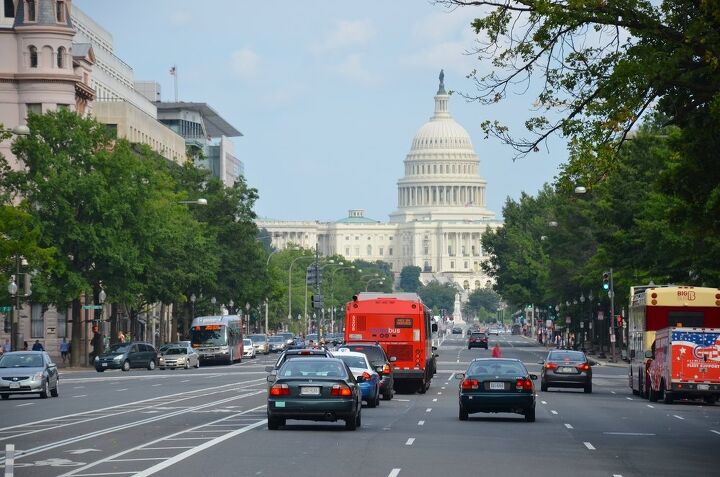



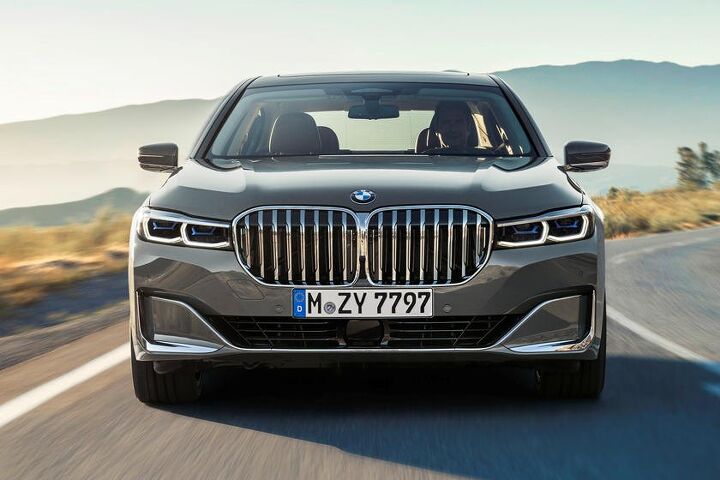



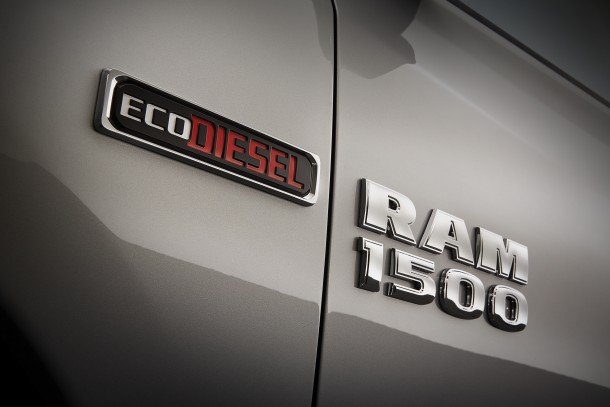
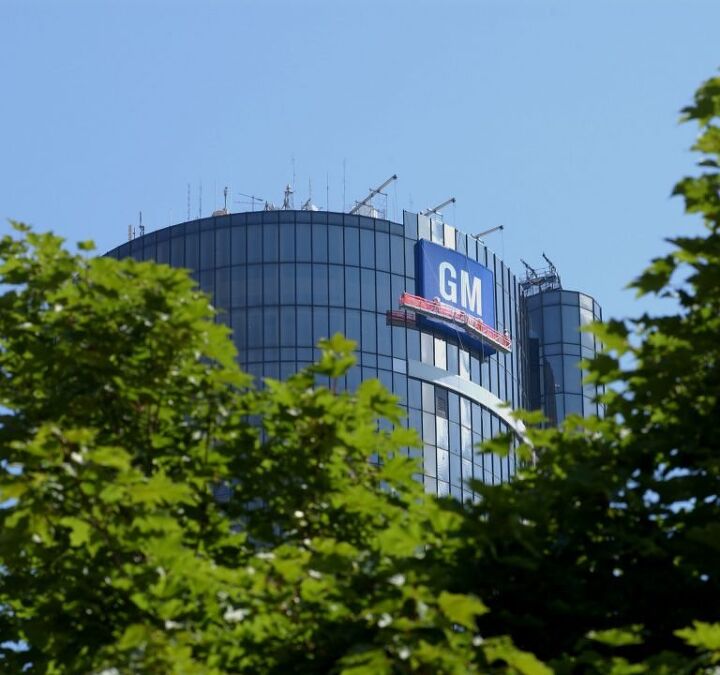
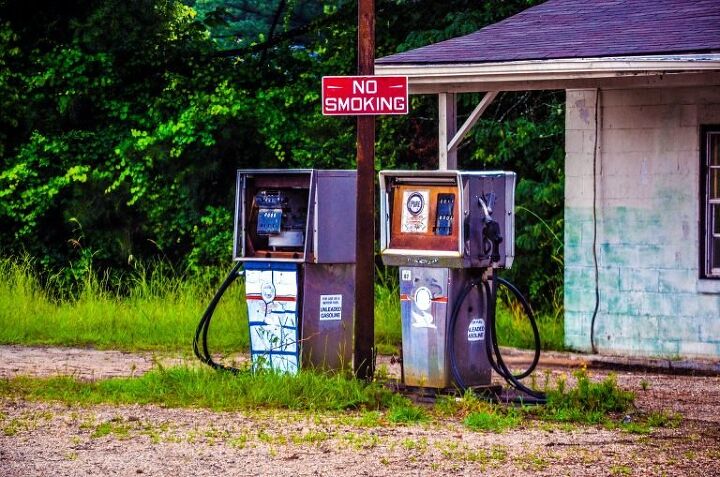



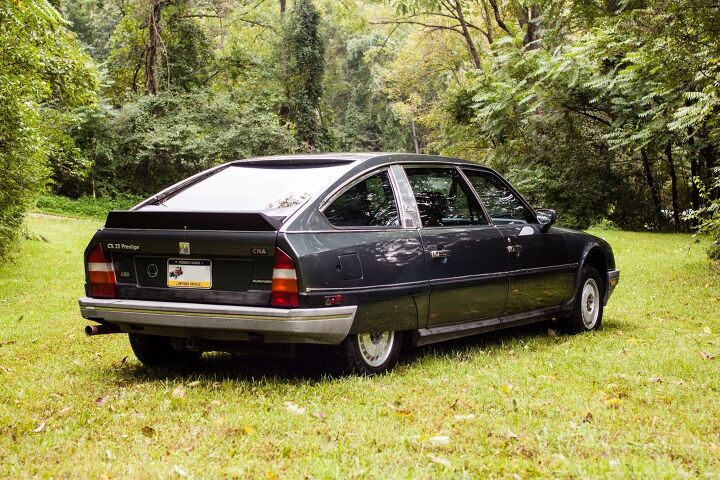












Recent Comments